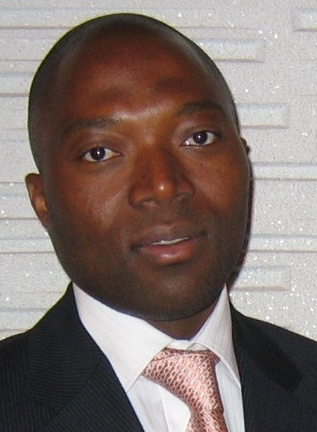 |
Prof.Schahram Dustdar, TU Wien, Austria
Abstract: Edge Computing in Context - Research and Engineering Challenges.
This talk explores current challenges for research and engineering in Edge Computing. In particular, we will discuss how to integrate the Internet of Things (IoT) with software, people, and systems, considering modern Cloud and Edge Computing technologies and paradigms. I will address a set of novel problems related to modeling, programming, and deployment of large-scale systems. These novel paradigms have major consequences on how we view, build, design, and deploy ultra-large scale distributed systems. |
|
Biography:
Schahram Dustdar is Full Professor of Computer Science and head of The Distributed Systems Group at the TU Wien, Austria. From 2004-2010 he was also Honorary Professor of Information Systems at the Department of Computing Science at the University of Groningen (RuG), The Netherlands. From Dec 2016 until Jan 2017 he was a Visiting Professor at the University of Sevilla, Spain and from January until June 2017 he was a Visiting Professor at UC Berkeley, USA. He is an Associate Editor of IEEE Transactions on Cloud Computing, IEEE Transactions on Services Computing, ACM Transactions on the Web, and ACM Transactions on Internet Technology and on the editorial board of IEEE Internet Computing and IEEE Computer. He is the Editor-in-Chief Computing (Springer). Dustdar is recipient of the ACM Distinguished Scientist award (2009), the IBM Faculty Award (2012), an elected member of the Academia Europaea: The Academy of Europe, where he is chairman of the Informatics Section, and an IEEE Fellow (2016)..
|
|
 |
Dr. David Carrera, Technical University of Catalonia (UPC), Spain.
Abstract: City of Barcelona’s deployment of fog computing for improved citizen and city services
Like mobile edge computing, fog computing operates at the edge of networks to allow content, services and applications to be computed, resulting in faster response times. Yet fog computing is a superset of MEC, providing additional functionality in the Internet of Things (IoT), robotics, artificial intelligence, the tactile Internet and other scenarios. This keynote will discuss what fog is and how it works with mobile edge and cloud, and discuss how the fog computing architecture supports compute, control, networking and storage at the edge, across all access modes. It will also discuss the city of Barcelona’s own deployment of fog computing for improved citizen and city services.
. |
|
Biography:
David Carrera received the MS degree at the Technical University of Catalonia (UPC) in 2002 and his PhD from the same university in 2008. He is an associate professor at the Computer Architecture Department of the UPC. He is also the Head of the "DataCentric Computing" research group at the Barcelona Supercomputing Center (BSC). His research interests are focused on the performance management of data center workloads. In 2015 he was awarded an ERC Starting Grant for the project HiEST, and ICREA Academia award and an ERC Proof of Concept grant ('Hi-OMICS') in 2017 to explore the commercialization of an SDI orchestrator for genomics workloads. He has participated in several EU-funded projects and has led the team at BSC that has developed the Aloja project (aloja.bsc.es) and the servIoTicy platform (servioticy.com). He is the PI for several industrial projects and collaborations with IBM, Microsoft and Cisco among others.He was a summer intern at IBM Watson (Hawthorne, NY) in 2006, and a Visiting Research Scholar at IBM Watson (Yorktown, NY) in 2012. He received an IBM Faculty Award in 2010. He is an IEEE and ACM member.
|
|
 |
Gary Spence CEO, Yotta Laboratories Ltd, UK
Abstract: Blockchain based systems and Edge computing working together as a decentralized public ledger
Blockchain based systems and Edge computing work together as a decentralized public ledger which can store and transfer data. We already know that Blockchain has many benefits however in a commercial setting transparency is not ideal but permissioned distributed ledgers can and are transforming how supply chains interact. Edge computing allows for this in a new way, from farming to industry the provenance and ability to check inventory in seconds is vital but this can also be reverse engineered to reduce waste and over manufacturing and therefore save millions to both industry and the planets ever growing waste stock pile. The recent advancements in both edge computing and also 5G is allowing us to research and prototype new methodologies for new solutions; and decentralized cloud networks, and Blockchain is just one of them, which will be the focus of this talk.
. |
|
Biography:
Gary Spence is a senior seasoned leader. A certified supply chain expert with the Institute of supply chain management and an elected branch chairman of the FSB (Federation of Small Businesses) An Ambassador for Stoke on Trent and is currently working with local colleges to establish tomorrows IT students, He has worked with DHL for over 10 years, where he established their first interactive IT drivers management system, and in the supply chain industry for over 20 years together regularly managing business contracts over £300m. Designing and developing IT systems for the supply chain industry including WMS and TMS systems. Gary is ISO Lead auditor for ISO9001, ISO 14000, ISO18000, ISO27000 and holds the Six Sigma Black Belt.
|
|
 |
Dr. Etienne Elie, Solutions Architect/Engineering Lead, Intel Corporation, California, USA
Abstract:Intel Optane™ Technology as Differentiator for Internet of Everything and Fog Computing
Traditional network and cloud solutions cannot address effectively the infrastructure and data architecture challenges introduced by the emergence of the Internet of Everything (IoE). IoE creates unprecedented volume of complex data which must be stored, transferred, processed and analyzed in real time for time sensitive applications. Indeed, most of the applications in IoE domain (autonomous driving, health monitoring, banking, industrial control systems ...) are time and quality of service sensitive and need new solutions for data integrity and data availability for successful decision. At Intel, we are working on new computer paradigm and storage technologies such as Intel® Optane™ SSDs and Intel® 3D NAND SSDs that can address some of these challenges. These solutions deliver enhanced levels of agility and performance to modern data centers and enterprise level cloud solutions. These new technologies also help towards enterprise businesses modernization of legacy infrastructure by enabling hybrid-clouds and emerging technologies such as Fog Computing and Artificial Intelligence while keeping up with performance, data integrity and security demands of a thriving digital business. With Intel® Optane™, it is now possible to create a high performance and real time available Software-Defined Infrastructure (SDI) by enabling full dis-aggregate and pool of the underlying hardware resources, creating distributed memory/storage imperatives and giving research community and enterprise the performance and capabilities to benefit from revolutionary technologies such as Fog Computing and Artificial Intelligence by dynamically assigning compute, storage and network resource in real-time time sensitive workloads.
In this keynote, we will discuss data storage, availability, integrity, quality of service and movement in this compute paradigm shift. We will also touch on how it impacts mobile edge, fog computing and cloud infrastructures. We will then conclude with the challenges and opportunities this new solution will bring.
|
|
Biography:
Dr. Elie is Solutions and Systems Architect and Engineering Lead at Intel Corporation, California, USA, where he leads the architectural and front-end design modeling solutions in the Non-Volatile Memory Solutions Group (NSG). Prior to joining Intel Corporation, Dr. Elie was the technology and engineering manager for CARTaGENE, a public research platform and biobank of the Sainte-Justine Learning Hospital, created to accelerate health research. In this role, he led data center and infrastructure architecture, data access security, and oversaw technical aspects of the M&A. He also served as ASIC Architecture Engineer at Nortel Networks and Advanced Micro Devices (AMD). Before moving to the US, Elie spent a short period of time with PSP Investments, one of Canada’s largest pension investment managers, where he served as infrastructure Enterprise Architect, leading the inception of the new disaster recovery data center. Beside his role at Intel Corporation, Dr. Elie is a key contributor for the development of a large-scale general-purpose neuromorphic Community Infrastructure (CI). This proposed infrastructure architecture based on Intel® Optane™ technology, will support the first CI to be broadly available and open to the community at large for research into deep learning using brain-inspired architecture for cognitive computing.
Dr. Elie holds a Ph.D. in Computer Architecture from Université de Montréal, with focus on optimization of data movements in computer systems. He also holds a Masters degree, and Bachelor of Science in Engineering with great distinction.
|
|